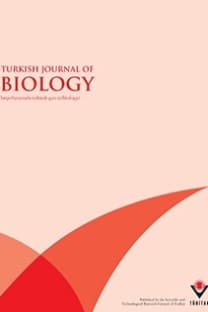Chondroitin sulfate-based biomaterials for tissue engineering
- ISSN: 1300-0152
- Yayın Aralığı: Yılda 6 Sayı
- Yayıncı: TÜBİTAK
AMENA MAHMOOD, AMBRISH TIWARI, KAZİM ŞAHİN, ÖMER KÜÇÜK, SHAKIR ALI
MELİS OLÇUM UZAN, ÖZNUR BASKAN, ÖZGE KARADAŞ, ENGİN ÖZÇİVİCİ
Amena MAHMOOD, Ambrish K. TIWARI, Kazım ŞAHİN, Ömer KÜÇÜK, Shakir ALI
Chondroitin sulfate-based biomaterials for tissue engineering
Nurullah AYDOĞDU, Pakize Neslihan TAŞLI, Hatice Burcu ŞİŞLİ, Mehmet Emir YALVAÇ, Fikrettin ŞAHİN
Underlying mechanisms and prospects of heart regeneration
Fatih KOCABAŞ, Galip Servet ASLAN, Dudu Gonca MISIR
Soner ÇAKMAK, Anıl S. ÇAKMAK, James D. WHİTE, Wassem K. RAJA, David L. KAPLAN, Menemşe GÜMÜŞDERELİOĞLU
Cellular and molecular basis of cardiac regeneration
Yustin JUDD, Wanling XUAN, Guo N. HUANG
Regeneration and healing of bone and cartilage in type-1 and type-2 diabetes: the effects of insulin
